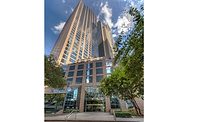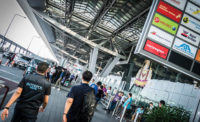BART’s Board of Directors has approved a plan to expand the transit agency’s network of digital cameras and install emergency call boxes on station platforms.
The $20 million plan includes expanding BART’s digital camera network in stations, parking lots, and garages. BART has more than 4,000 surveillance cameras, which are a mixutre of digital and analog. The plan is to convert all analog cameras HD digital cameras at a cost of approximately $15 million and take roughly four and a half years to fully complete.
BART will also install three emergency call boxes on each platform. Each call box would have a direct intercom with BPD dispatch and a camera would activate whenever the intercom button is pushed. Stations currently have white courtesy phones to connect to the station agent booth, but according to BART, "this would offer more options and a quicker connection to dispatch. High priority stations will get the call boxes as early as Fall while system-wide implementation could take two years with an estimated cost of $5.2 million."
In addition, the Board is considering system-wide implementation of a PSIM system to monitor thousands of simultaneous video streams and automate response recommendation to BPD dispatch. Estimated cost is $4 million for implementation and $1.3 million in ongoing costs.
It's also considering the installation of video screens showing real-time station images and enhanced video surveillance signage. "The idea would be tested at San Francisco’s Civic Center Station where video screens would be strategically placed at station entrances to remind riders the area is under surveillance. Additionally, signs that inform people in and around the station that they are under video surveillance would be installed," it said.
Last, the Board may "accelerate station hardening efforts to make it harder to bypass the faregates. These efforts include raising barriers between the free area and paid area to five feet, alarming service gates, and adding additional fencing to include elevators in paid areas. This part of the safety plan is scheduled to go before the BART Board in September. BART is also studying the costs involved to change the actual faregates to prevent fare evasion. Cost estimates to replace the faregates are $150-200 million."



